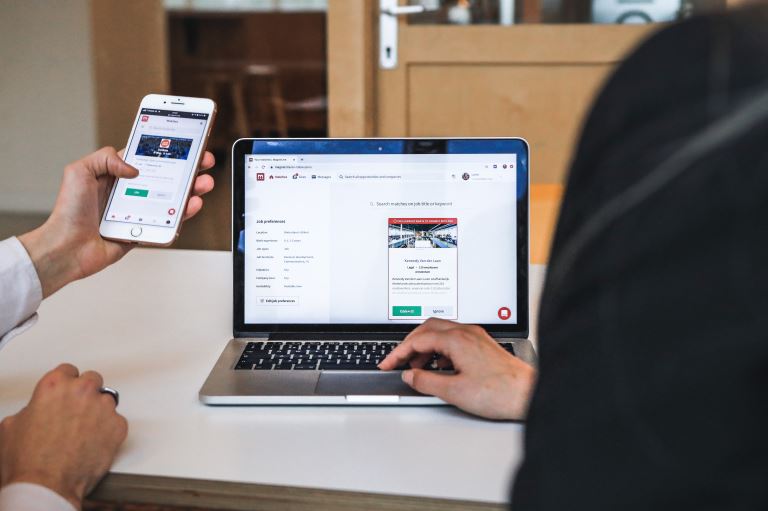Simple Steps To An Effective Website Non-CMS Strategy
I have developed this article to help you better understand the simple steps to an effective website non-CMS strategy. It is well-researched and contains everything you need to know about non-CMS websites. Keep reading.
There are several simple steps to an effective website non-CMS strategy, such as; registering a domain name, purchasing scalable, secure website hosting, coding your entire page structure, creating a unique, attractive, engaging website user interface, testing and launching and maintaining your website.
Read on to learn about the most popular website builders. There's a lot to learn in this article.
Simple Steps To An Effective Website Non-CMS Strategy
When building a new website for a client, one of the first things you inquire about is whether the business prefers a non-CMS (also known as a standard HTML) site or a content management system (CMS) site. The best option will rely on various elements, such as the client's budget and the level of controlling the business needs over the place. Although many customers are asking for CMS sites, others still choose the conventional approach.
Therefore, HTML pages that are not part of a content management system are static. With one of these sites, you receive what you see. You must enter the site's code directly to make any changes. Below are Simple Steps To An Effective Website non-CMS Strategy.
1. Register A Domain Name
You must choose a name for your website as your first step. Make sure it's specific to your brand, short, simple to remember and spell, and not too long. The name of your website will need to be registered; most domains cost fair prices to keep up. Find a registrar that sounds good to you by shopping around. High ratings can be in:
- BlueHost
- GoDaddy
- HostGator
2. Purchase Scalable, Secure, Website Hosting With Good Technology Support
A website host is a business that provides the tools and services required for a website's online presence. You link your domain name to your hosting company so that users can access the website you maintain on your hosting account when they type in your website address. The Following are some suggestions for picking a reliable website hosting plan:
- Verify the server's security measures to discover what they are on the server you are considering.
- Make sure your hosting provider offers phone and live chat support so you can get assistance immediately if there is a problem.
- It would be best if you had cPanel or another user-friendly server interface to access your server.
- Have a dedicated server
3. Code Your Entire Page Structure
you must code the entire page structure and elements from scratch if you are developing a website without a CMS. To achieve this, get a reliable notepad and start writing your HTML and CSS there. An excellent place to start is using Brackets, a free pad that is highly sophisticated and user-friendly for many kinds of languages. It also features extension management, where you can download plugins to simplify coding.
There are many fantastic, cost-effective, and accessible tools online to get you started if you lack the necessary skills. For instance;
- W3schools
- Udemy
- Code academy
- Stack Overflow
4. Create An Memorable, Interesting, And Engaging Website User Interface
Make sure the user experience on your small company website inspires confidence and produces results. Implementing the following advice will help you: Make use of lovely images and readable typefaces; compress and optimize your graphics for quick loading; investigate the rivals' website designs and optimization strategies; and use comparable elements that benefit your small company website. Publish pages that are typical for small business websites, like:
- Home
- About Us
- Management team
- Products/Services
- Sitemap
- Terms of use
- Contact us
5. Conduct Testing.
Website testing is a crucial phase in the design process and must be done simultaneously with development. Functionality, usability, interface, compatibility, performance, and security testing are just a few tests that make up an end-to-end website. A rigorous testing schedule ensures the user has a trouble-free experience using your website or web application.
6. Launch And Maintain.
Transferring the website from a local server to a live server is necessary for launch. Before the website's launch, your design and development team must strike the ideal balance between the two aspects of web design, which is a fine line between form and function. The website's launch is just the beginning of the process of development. It is merely the achievement of another milestone. The website must successfully launch into the maintenance phase for it to function.
What are the Most Popular Website Builders
The future success of your organization depends critically on your choice of a website builder. The top website builders can help you achieve your objectives, from online product sales to brand development. Here you can choose the most acceptable website builder for you by looking at the list of the best website builders.
1. Wix
With more than 100 million users, Wix is the most well-liked website builder available. To design your website in any business, they provide more than 500 ready-to-use themes. There are 100 typefaces available, and these templates are mobile-optimized. Their designs also have stunning scroll effects and cutting-edge elements like animated backdrops and video. The most accessible website-building tool available is Wix. Without knowing any code, you may nearly limitlessly alter your website's looks and feels.
They also have a tool called Artificial Design Intelligence (ADI), the first website builder powered by artificial intelligence. Wix ADI researches your website and uses that knowledge to create a site suited to your unique requirements. This program uses AI to select from among the many possible combinations of photos, text, layouts, and contact forms.
2. Squarespace
Squarespace knows how to design stunning, high-quality websites for small enterprises and personal websites. They are the best in design, offering more than 100 design templates. Squarespace layouts have to be appealing. Any website would look great with the fonts, color schemes, and pictures.
It has various vital features. The Design Panel is excellent for people who desire total control over the appearance and feel of their website. You can create multiple content types using content types, including blogs, portfolios, and more. Finding the appropriate appearance and customizing it is made simple with pre-built layouts. Without starting from scratch, you can alter the appearance of your website using customizable templates.
3. Hubspot
In addition to having a robust CMS and website builder, Hubspot is an excellent CRM and marketing tool. You can use their platform to build website pages, blog entries, and landing pages from scratch or pre-built templates. You may construct websites using the drag-and-drop builder that uses responsive design to make them appear fantastic on any device.
Personalization and integrations are two areas where HubSpot excels. HubSpot works with various marketing software, such as; Programs for handling email marketing, Getting yourself online, and Gathering, engaging with and comprehending leads.
4. GoDaddy
GoDaddy is the quickest website builder in the world and is incredibly user-friendly. With its design aid, GoDaddy will generate a custom website for you to customize after you submit your information. Basic layouts and instructions for adding items to your site make a quick and easy development process
How to Know When You Need a Non-Cms Website
A website without CMS can as well do well in the online market. Data from a Non-CMS can be represented by a JSON file, for instance, within the server with images, videos, texts, and other content. This content is hardcoded by being embedded directly into the program code. Basic development languages will also be sufficient to build temporary web pages -maintenance pages. Users should be aware that some functions may be unavailable because maintenance is in progress.
A developer skilled in HTML and CSS is capable of creating a website without CMS. A Non-CMS website is suitable if you need the following:
- A landing page
- A personal blog
- an online business card
- Documented pages
- Maintenance page
Conclusion
An effective non-CMS website may not be as easy to make as you first believed. However, if you adhere to the steps above, your company will have a perfect chance of prospering. Thus, a non-CMS website is ideal for your small business needs. As discussed, there are various website builders that you can pick from and use. You can reach out to Guru Solutions for effective website non-CMS services for your brand.













